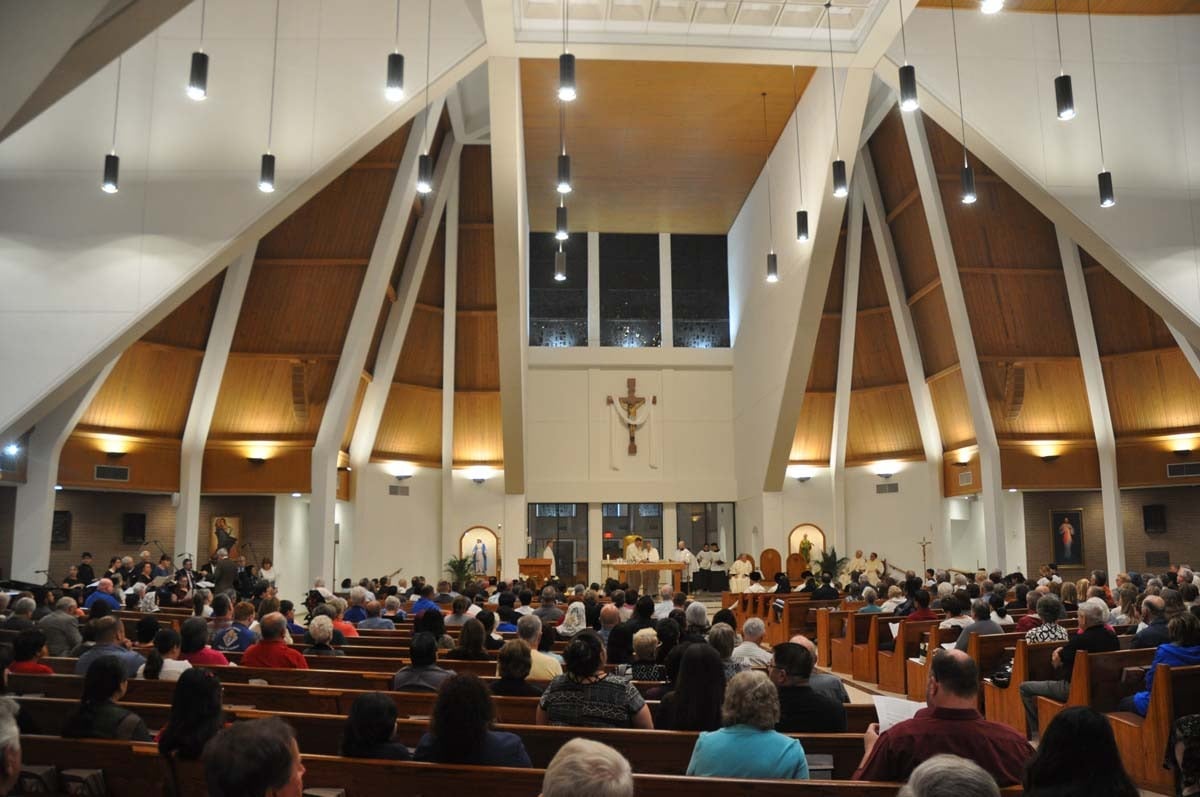VENCES: Making time to grow in faith with Sacred Catechesis
-
September 8, 2025
 Herald file photoCatechetical leaders across all our parishes are working hard to recruit and train catechists for the upcoming catechetical year. Tens of thousands of children, adolescents and adults across our Archdiocese will come to their church to dedicate about an hour and a half a week to learn why it is good news that God chose to become human to love us. To show us how to love and to learn why it is great news that they can meet and enter into a relationship with Jesus Christ through their parish community and their participation in the Sacraments.
Herald file photoCatechetical leaders across all our parishes are working hard to recruit and train catechists for the upcoming catechetical year. Tens of thousands of children, adolescents and adults across our Archdiocese will come to their church to dedicate about an hour and a half a week to learn why it is good news that God chose to become human to love us. To show us how to love and to learn why it is great news that they can meet and enter into a relationship with Jesus Christ through their parish community and their participation in the Sacraments.
While an hour and a half a week seems inadequate to accomplish such vital and life-altering goals, we must remember that taking time regularly to talk, to learn, to reflect, to pray and to intentionally sit at the feet of our teacher, Jesus Christ, frequently does not happen at all. For most families, every day starts very early and it immediately takes on an almost frantic pace that continues until very late and often ends with physical, emotional and spiritual exhaustion.
Given this context, the hour and a half spent in catechesis takes on such an important role in the lives of the children, adolescents and adults who will attend our catechetical programs that the only word that accurately describes this hour and a half is the word “sacred.” This means that it is of such importance that its value cannot be defined or quantified. This also means that those who are entrusted by Christ and the Church with the ministry of catechists are privileged and have a great responsibility for the way they use that sacred hour and a half.
The sacred time of catechesis is critical for the vitality of the Church for many reasons, but especially because it is the time when we have to guide children, adolescents and adults into the sacred mysteries at the core of Catholic belief and practice. Please notice that I avoided saying “learn about…” and instead I said “guide into…” to bring to the front the importance of the catechist as a spiritual companion, a dimension of catechetical ministry often unintentionally neglected by our efforts to get our learners to learn as much as possible about the Catholic faith in the limited time we have.
A spiritual companion meets you where you are at. Regardless of whether you already have a spiritual life or if you have never been introduced to any religious practices, a companion does not judge, does not force the pace or direction of the journey, and always makes you feel seen, heard and valued.
A spiritual companion shares his/her own journey of faith, with ups and downs, with moments of faithfulness and moments of doubt, but always with an overall message that through it all, God has remained present and unconditionally on your side.
Recognizing this and sharing this with our learners is the best way to discover what hope is all about. Hope is knowing that while a lot of things are in constant change and flux, that most things come and go, strengthen and weaken, there is always something, someone that remains firmly present and unconditionally on your side.
As we celebrate Catechetical Sunday this year, whenever we commission our catechists, let’s keep in mind the theme proposed by our American bishops, “always be ready to give an explanation …for a reason for your hope.”
Let us remember that our objective as catechists is not only that our learners know what we believe but also why we believe it. We believe it because God is good, because God is constant, because the Church treats us as a caring mother and a companion in our journey to discover why it is good news that Jesus Christ wants to be in our lives.
Miguel A. Vences is an associate director with the Office of Evangelization and Catechesis.
